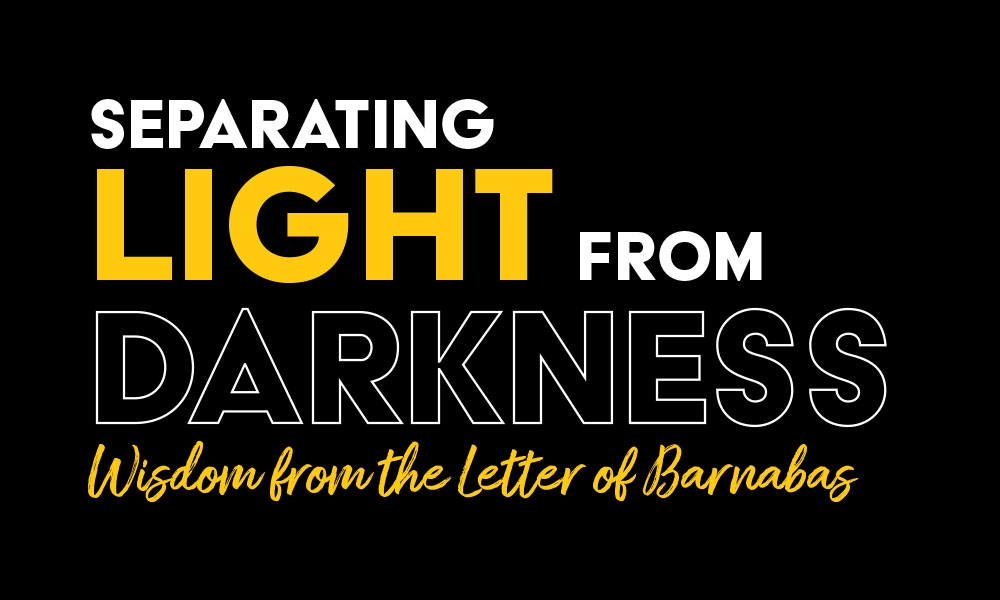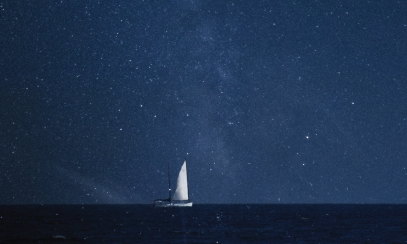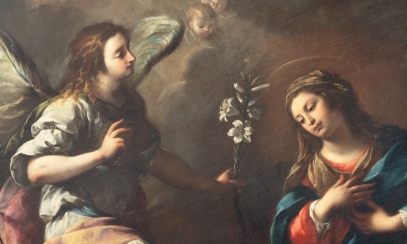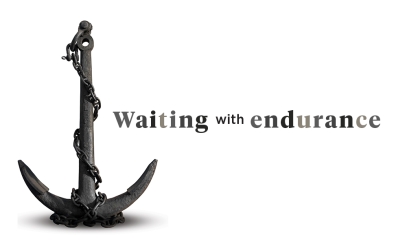
Separating light from darkness
Getting your Trinity Audio player ready...Last month, we reflected on the two ways: the way of life and the way of death, as presented in the 100 AD text, the Didache. This month let us pursue this same theme as it is found in another early Church document, the Letter of Barnabas. This letter was written about 130 AD. The first 17 chapters are all about how Jesus Christ and Christianity fulfill the Old Testament.
Last month, we reflected on the two ways: the way of life and the way of death, as presented in the 100 AD text, the Didache. This month let us pursue this same theme as it is found in another early Church document, the Letter of Barnabas. This letter was written about 130 AD. The first 17 chapters are all about how Jesus Christ and Christianity fulfill the Old Testament.
In the last three chapters, Barnabas poses the two options which we all face: “There are two ways of teaching and power, one of light and one of darkness. And there is a great difference between the two ways. For over the one are set light-bringing angels of God, but over the other angels of Satan.” (18:1)
Again, we are confronted with the necessity to choose which way we wish to follow. Too often we like to straddle the fence and not commit ourselves. However, that very choice is usually in reality a choice for darkness.
The way of light is one of really loving God and thus keeping his commandments. This requires a humility which we often find limiting but is really a matter of focusing: “Thou shall not be in two minds.” It is in this text that we find the familiar words: “Thou shalt love thy neighbor more than thy own life. Thou shall not procure abortion, thou shalt not commit infanticide.” (19:5) These must have been serious problems at that time.
Barnabas also calls us to practical love: “Thou shalt share all things with thy neighbor and shall not say that they are thy own property; for if you are sharers in that which is incorruptible, how much more in that which is corruptible?” He calls us to be mindful of how we speak, to remember the day of judgment, to seek “the society of the saints,” to hate evil, to reconcile rather than cause quarrels, and to pray with a good conscience. (19:8-12)
Barnabas briefly describes the way of darkness as being full of cursing and full of things that destroy one’s soul and then lists a number of vices of which we are very familiar, concluding with “corrupters of God’s creation, turning away the needy, oppressing the afflicted, advocates of the rich, unjust judges of the poor, altogether sinful.” (20:1-2)
The irony of the two ways is that, whether we know it or not, we are always actually choosing one or the other. The way of darkness is the easier one and we mostly choose that by default. The way of light, guided by grace, is more difficult, and we often follow it when we are our best selves. However, to make this a conscious choice and a focused effort will more clearly place us on the right path.



